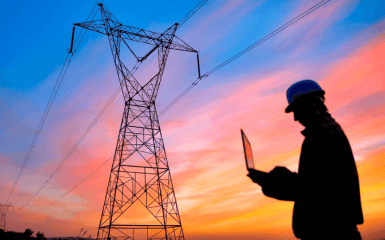In recent weeks, the Russians have destroyed 80% of Ukraine's thermal power plants with strikes.
What are the consequences of the Russian attacks on the Ukrainian energy facilities?
Unfortunately, Russia continues its energy terror — in the last few weeks alone, the Russians have destroyed more than 6 gigawatts of our power grid. These are both hydropower and coal power.

Denis Shmyhal
Prime Minister of Ukraine
According to the Prime Minister of Ukraine, Russia continues to fire missiles at energy facilities, destroying transformers and generators.
"Unfortunately, Russia has destroyed 80% of its thermal power plants in recent weeks," Shmyhal said.
The Prime Minister added that Ukraine is looking for equipment from its partners to help restore the affected power plant units. A decentralized system of energy supply to the population is also being created.
What is known about the attacks of the Russian Federation on the Ukrainian energy industry
On March 22, the Russian occupiers launched the most significant combined attack on the Ukrainian energy system since the beginning of the full-scale invasion.
There was a blackout in Kharkiv. The occupiers launched more than 60 drones and almost 90 missiles of various types across Ukraine. Air defense forces shot down 92 targets out of 151. Among other things, the occupiers hit the Dnipro hydroelectric power plant, but there is no threat of a dam breach. Both stations that are part of the Dnipro HPP (HPP-1 and HPP-2) stopped working, while HPP-2 was critically damaged.
As a result of the attack, emergency and stabilisation blackouts were introduced in the Dnipropetrovsk, Odesa, and Donetsk regions.
On the night of March 29, Russia launched a powerful missile airstrike on objects in the fuel and energy sector of Ukraine.
The Ukrainian Air Force reported that the enemy used various types of missiles and attack drones, a total of 99 means of air attack.
Energy infrastructure was damaged in Dnipropetrovsk, Vinnytsia, Ivano-Frankivsk, Lviv, Cherkasy and Chernivtsi regions. The targets of the occupiers were also the Kaniv and Dnister hydropower plants located in the Cherkasy and Chernivtsi regions.
As the President of Ukraine Volodymyr Zelenskyy stated, the Russians are now trying to cause as much destruction as possible to the country's energy sector with their combined airstrikes on the territory of Ukraine.




